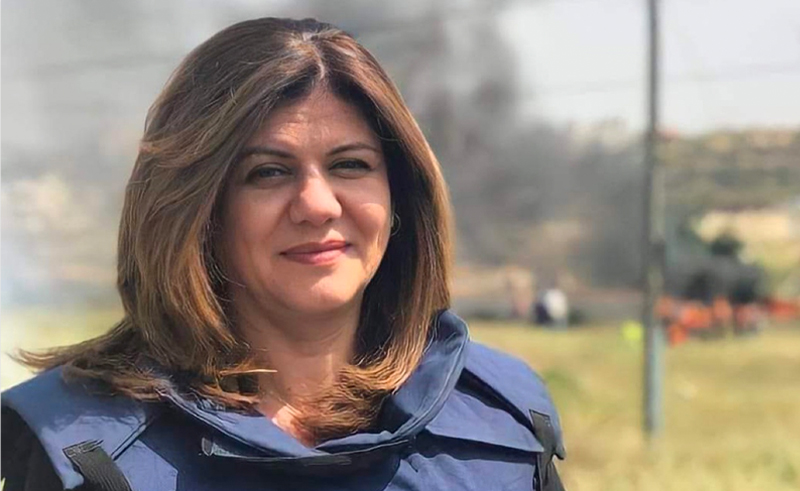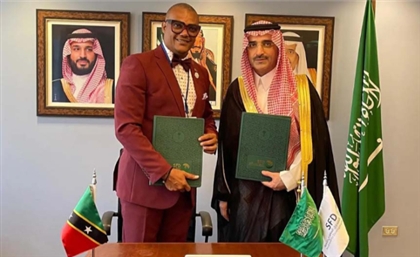Shireen Abu Akleh: Exploring the Emerging Arab Narrative a Month Later
A month has passed since Shireen Abu Akleh was killed by the Israeli Defence Forces. Since then, a new narrative has emerged amongst the Arab people, centred around the famous Palestinian journalist.

“This is Shireen Abu Akleh, Al Jazeera, Ramallah, Palestine.”
“Shireen Abu Akleh, Al Jazeera, Jerusalem.”
“Shireen Abu Akleh, Al Jazeera, Nablus.”
“Shireen Abu Akleh, Al Jazeera, Jenin.”
Twenty-five years of reporting on crimes committed by the apartheid state of Israel in the occupied land of Palestine live through Al Jazeera, Shireen seemed infallible. Her signoffs inspired hundreds of young men and women in Palestine and the Arab world to pursue journalism. An entire generation of Palestinian youth often imitated her iconic Second Palestinian Intifada report signoff, singing: “AnaShireen Abu Akleh, Al Jazeera, Ramallah,Falasteen.” [This is Shireen Abu Akleh, Al Jazeera, Ramallah, Palestine.] A lilting melody even Egyptian millennials are familiar with from their childhoods.
A month has passed since Shireen Abu Akleh was killed by the Israeli Defence Forces (IDF) via a bullet to the temple while wearing her navy PRESS vest and helmet, reporting live from a raid by the IDF against Palestinians in Jenin, Palestine. Not a day has gone by without people from all over the region saying her name. Losing the voice of Palestine, the eye of the truth, and the icon of transparent and accountable journalism is not just a loss to Palestine but a loss to every Arab in the world.
Shireen Abu Akleh is a Palestinian-American journalist, born in Jerusalem in April of 1971 to a Catholic Christian family originally from Bethlehem. Abu Akleh grew up in Palestine but spent some of her childhood in the United States to obtain her citizenship. However, she did graduate school from the Rosary Sisters high school in Beit Hanina in Jerusalem, then left for Jordan to study architecture at the Jordan University of Science and Technology, only to decide the profession was not for her. Thus, Abu Akleh transferred to Yarmouk University, where she pursued a degree in journalism.
Shireen Abu Akleh started working as a journalist for Radio Monte Carlo and Voice of Palestine (a radio station based in Ramallah) before working with the United Nations Relief and Works Agency (UNRWA) for Palestine Refugees in the Near East. She continued to work for other platforms, initiatives, and channels before landing a job as a journalist and one of the first field correspondents for Al Jazeera in 1997, quickly becoming a household name due to her popularity as a reporter on their Arabic-language segment. Throughout her twenty-five years as a journalist and correspondent on Al Jazeera, Abu Akleh lived and laboured in East Jerusalem, right at the heart of Palestine. She devoted most of her life to reporting on important events in the occupied lands, particularly situations of settler-colonial violence and the opposing Palestinian resistance.
Abu Akleh reported live from the ground during the Second Palestinian Intifada in 2000, the Battle of Jenin in 2002, and innumerable operations by the IDF and settler colonialists in the Gaza Strip and elsewhere in Palestine. Shireen Abu Akleh was also the first Arab journalist allowed entry into the Shikma Prison - an Israeli prison complex in Asqalan - in 2005 to interview long-term Palestinian prisoners there, including a few who had spent over twenty years behind bars.
Last July, Shireen Abu Akleh was chosen to be the first Al Jazeera journalist reporting live from Cairo, Egypt once more as the network prepared to announce the return of its operations in response to the improvements of Egypt-Qatar relations.
In the month since Abu Akleh’s assisination in the occupied West Bank, many institutions all around the globe have gone to great lengths to commemorate her. The United Nations, for example, renamed their annual training programme for Palestinian journalists, becoming ‘The Shireen Abu Akleh Training Program for Palestinian Broadcaster and Journalists’ in remembrance of Shireen. Meanwhile, the Bayt Mal Al Quds Agency in Morocco, a funding initiative set up by the King of Morocco to protect Al-Quds and aid its people, has launched a new annual journalism award commemorating the life and work of Shireen Abu Akleh. Recently, Al Jazeera released a request to award Abu Akleh the Nobel Peace Prize, to pay homage to her trailblazing career and brave heart.
“I chose journalism to be close to the people. It might not be easy to change the reality but at least I could bring their voice to the world. I am Shireen Abu Akleh.”
As people, we tend to fall into the trap of romanticising resistance, particularly experiences of violence that resulted in either impossible survival or martyrdom, both bringing great honour. Consequently, we build a dais upon which to elevate those people, to immortalise them as brave, just, and honourable heroes. Unfortunately, this practice is reductionist. It allows for those people to be reduced to ‘parts of the cause’; a pattern that develops due to the recycling of discourse where a whole person is reduced to a two-dimensional version of themselves associated with a general cause, effectively dehumanising them.
But something changed with Shireen.
Instead of the narrative of response to Shireen’s murder deifying her, there seemed to be a collective unspoken agreement to humanize her. News outlets have published reports about the investigation into Shireen’s killing, including demands for the United States to launch an investigation into her murder, but the outpour of personal narrative stories from Shireen’s family, friends, colleagues, and acquaintances from all over the world is unprecedented in both quantity and effect. To say that it was a powerful move is a massive understatement; as we’re still engaging with the ripple effect of those stories a full month later, with no sign of stopping.
It is expected that whenever an injustice as public as Shireen’s murder occurs, the response is a demand for justice. There is a demand for justice for Shireen, but the discourse coming out of the region decided to subvert macro politics, and transformed the political from a structural entity into a personal matter. People, all over the region, have been repeating, “I am Shireen Abu Akleh” in a personal political statement that says; Shireen will live on in all of us, and you’ll never silence her unless you silence us all.
Shireen broke the dam enforcing silence, and now it’s up to us to keep it that way.
























